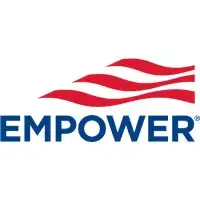- Betterment
- M1 Finance
- Personal Capital
- Plan for retirement
- Monitor your investments
- Uncover hidden fees
- Wealthsimple
- Acorns
- Ellevest
- SoFi Automated Investing
- Ally Invest
- Wealthfront
- Fidelity Go
- Charles Schwab Intelligent Portfolios
- Vanguard Personal Advisor Services
- Automation: Removing the human element varies depending on the
Robo-Advisor you choose, but it’s largely hands-off. Many features including tax-loss harvesting and rebalancing are done for you. - Low Management Fees: Again, removing the human element carries lower costs compared to a financial advisor. Many wealth managers charge a 1% advisory fee or more.
- Custom Portfolios: Complete a risk-assessment and your portfolio is constructed for you in minutes depending on your financial goals.
- Low Investment Minimums: Many robo-advisors offer significantly reduced minimums to open an account. Consider an option like SoFi with no minimum balance requirement to Vanguard’s $50,000 Personal Advisor Services minimum.
- No Room for DIY-Investors: Robo-investing is mostly hands-off. If you’d like to build a portfolio yourself, you’ll be unhappy with this option. Less room to hand-pick your investments as they’re pre-selected.
- Less Human Contact: Many robo-advisors have limited human support and physical branches. This can be a deal-breaker for some. You may not like the inability to walk into your local branch and speak with your advisor in-person.
Assets under management topped $1 trillion in the global robo-advisory market. Thanks to fintech, lower costs, total automation, and tax-optimized investment strategies are becoming the norm. Simply put, if you’re considering which Robo-Advisor is best for you, read this post.
Who is the best Robo-Advisor? It depends on what you’re looking for. You can find a
Premium services once reserved for the ultra-wealthy, like tax-loss harvesting and tax-coordinated portfolios, are now available for pennies on the dollar.
Lower minimum balance requirements make it even easier for investors without a substantial net-worth to gain access to these services.
You can start building your wealth today regardless of your financial situation.
What Is a Robo-Advisor ?
Robo-advisors offer an alternative to human, financial advisors. It’s like a portfolio on steroids. Why?
Because robo-advisors use computer algorithms to monitor your investment portfolio 24/7. It maintains your asset allocation by automatically rebalancing and looks for every possible way to optimize its performance while keeping costs low.
Typically, robo-advisors are fiduciaries. They act by what’s best for you and aren’t motivated by sales commissions. In short, you’re not being sold.
Many consider the low costs of a
How to Pick a Robo-Advisor
Not all robo advisors are created equal. When choosing yours, consider things like the type of investment account needed, your investment goals (what are you saving for?), and minimum balance requirements.
It’s crucial to weigh the costs. Management fees and fund expense ratios matter. Choosing a portfolio built with low-cost ETFs, index funds, and an inexpensive advisory fee is the standard.
You should also consider the kind of financial planning offered. If the investment strategy isn’t aligned with your investment goals, it doesn’t make sense to fund an account.
Answering these questions before choosing your
Top-Ranked Robo-Advisors
Minimum Investment:
$0
Management Fees:
0.25%
Promotion:
Invest free for up to 1 year
Tax Loss Harvesting:
Yes
Portfolio Rebalancing:
Yes
Assets Under Management:
$21 billion
Minimum Investment:
$100,000
Management Fees:
0.49% - 0.89%
Promotion:
Join for Free
Tax Loss Harvesting:
Yes
Portfolio Rebalancing:
Yes
Assets Under Management:
$12B
Minimum Investment:
$0
Management Fees:
0.5%
Promotion:
Get your first $10,000 managed free
Tax Loss Harvesting:
Yes
Portfolio Rebalancing:
Yes
Assets Under Management:
$13B
Minimum Investment:
$0
Management Fees:
$0
Promotion:
Invest for Free
Tax Loss Harvesting:
No
Portfolio Rebalancing:
Yes
Assets Under Management:
$1 billion
Below are a few favorites that we’ve either used or have deemed worth a look due to their investment options, low fees, and stellar customer service.
Get our best strategies, tools, and support sent straight to your inbox.
Best Robo-Advisors This Year
It’s not about saving for retirement anymore, but rather when you’ll need the money.
You’re also able to purchase financial advice packages for a flat fee.
We’ve had their CEO on our podcast. Have a listen here for the interview with Jon Stein or read our detailed
Best for: Low-cost investing
Management fees: 0.25%-0.40%
M1 Finance functions as an online broker and investment manager hybrid. It’s free to use as you’re not charged any trading commissions, or a platform usage fee, for deposits or withdrawals of any kind.
It also doesn’t carry any management fees and you can start investing for $100.
You can choose from over 80 expert, curated portfolios, create your own, or combine the two. M1 offers more variety with its portfolio selection.
It doesn’t offer tax-loss harvesting, but if you’re a DIY investor, this can be done by you for free.
M1 Finance buys and sells fractional shares and supports accounts ranging from individual and joint to retirement and trusts.
You can also integrate your investing account with their digital checking as well as borrow up to 35% of your portfolio’s value on margin.
You can upgrade to M1 Plus for an annual fee of $125.
Best for: DIY investing
Management fee: None
Read our full M1 Finance review. Visit M1 Finance here.
Known for its exemplary suite of free tools, Personal Capital is also a financial advisory service for high-net-worth investors. It uses the automation of a
They offer three tiers of wealth management depending on your account balance. Personal Capital requires a $100,000 minimum investment and starts with a 0.89% management fee.
You’ll gain access to a custom portfolio based on your financial goals curated from six asset classes. Personal Capital offers dynamic rebalancing and smart indexing as part of its tax-optimized strategy.
The U.S. equity portion of its portfolios is a diversified selection ranging between 80-120 individual stocks.
Read the review here. Or, sign up to use their free tools.
Best for: High net worth investors
Management fees: 0.49% – 0.89%
Personal Capital is Now Empower - Track your entire portfolio for free.
All your accounts in one place
Toronto-based Wealthsimple started with a mission to reduce the complexities associated with big banks and make investing more accessible.
It has topped $14 billion in assets under management with 175,000 customers.
Wealthsimple accounts can be opened in five minutes after answering a few questions about your risk tolerance, time horizon, and goals. They’ll craft an asset allocation aligned with your risk level.
Wealthsimple’s annual fee is a bit higher starting at 0.5%. That number drops to 0.4% on account balances over $100,000.
You’ll choose between three custom portfolio options ranging from conservative to balanced to growth.
Its portfolios are designed based on Modern Portfolio Theory, are globally diversified across seven asset classes, and use exchange-traded funds (ETFs).
You’ll also gain access to automatic rebalancing, tax-loss harvesting, and dividend reinvesting.
Wealthsimple manages the first $10,000 with no management fees for Listen Money Matters readers.
Best for: Personalized portfolios
Management fees: 0.4%-0.5%
Read our complete Wealthsimple review. Or, visit their website.
Acorns is a digital, micro-investing app known for its roundup feature. What is that?
Micro-investing takes your spare change and rounds it up to the nearest dollar. Let’s say you made a $17.40 purchase. Acorns will take the extra $0.60 and deposit it into your investment account.
Small deposits add up over time, and anyone looking to get started will benefit from this feature. For people looking for a low barrier to investing, Roundups solves the problem.
They feature a multiplier tool, in case the spare change isn’t enough. Choose to roundup 2x, 3x, or 10x the amount.
Acorns features individual investment, retirement, and digital checking accounts. If you’re looking to do all of your banking in one spot, this feature might be worth a look.
Getting started with Acorns requires answering a few questions about your risk tolerance and financial goals. Next, they create your portfolio using a combination of seven asset classes.
Read our Acorns review. Or, visit their website.
Best for: Students
Management fee: $1 – $3 monthly subscription
Ellevest is a financial services company designed for women to help them meet their financial goals. The company was founded in 2014.
While women live longer than men, their income peaks sooner (by as much as 15 years). Ellevest creates its portfolios based on this data-driven approach using proprietary algorithms accounting for the gender pay gap.
Investors design a portfolio with a goals-based approach. There are six goals to choose and range from Build Wealth to Start My Own Business to Retirement On My Terms.
Ellevest picks an appropriate allocation of ETFs based on your risk assessment and goals. Its platform carries no minimum investment requirements and features portfolio rebalancing.
It manages $400 million in assets. Ellevest offers investors three platforms including Digital, Premium, and Private Wealth Management Services.
Read the full review here. Or, visit their website.
Best for: Women
Management fees: 0.25%
SoFi’s automated investing option builds and manages a portfolio for you without an advisory fee. It features goal planning, auto rebalancing, and has no minimums to create an account.
Currently, SoFi offers five different investment strategies featuring conservative, moderately conservative, moderate, moderately aggressive, and aggressive.
You’ll gain access to certified financial planners, coaching, and a portfolio constructed of low-cost exchange-traded funds.
You can start investing with SoFi for $1. Visit their website or read our review here.
Best for: Beginners, low costs
Management fee: None
Ally Invest has a range of investment options from self-directed brokerage accounts, margin accounts, and managed portfolios.
Its cash-enhanced managed portfolio carries no management fees and a $100 minimum investment.
Managed portfolios range in account types from individual or joint; traditional, Roth, custodial, and rollover IRAs.
You can also access self-directed trading featuring an assortment of commission-free stock, ETF, and options if you’re the DIY-type.
Read our full review here. Or create an account.
Best for: Portfolio selection
Management fees: 0% – 0.30%
Wealthfront is a
Their advisory services are fully automated. Its funds carry low costs with expense ratios averaging between 0.06%-0.13%.
Wealthfront has an ample selection of investment options catering to virtually everyone. Its cash-managed account carries a competitive interest rate and is FDIC-insured up to $250,000
For high net worth investors with balances over $100,000, Wealthfront offers Stock-Level Tax-Loss Harvesting and Risk Parity.
Read our Wealthfront review.
Best for: Low-costs, account options
Management fee: 0.25%
Brokerage Firms Featuring a Robo-Advisor
Robo-advisors are gaining in popularity, and it hasn’t gone unnoticed by brokerage firms. Many have started including an automated investment arm as an option for customers.
Fidelity’s robust platform offers everything from mutual funds to annuities to college savings plans. They’re also a registered investment advisor, fiduciary, and offer professionally managed portfolios.
Its
There are no trading fees, commissions, or transfer fees. You can focus on building wealth, retirement, or another goal-based option.
Fidelity’s portfolios are comprised of low-cost funds, and will help keep you on target to hit your goals. Because Fidelity is a large brokerage firm, you can combine other Fidelity accounts in a single place.
Read our complete Fidelity vs. Vanguard comparison here. Or, visit Fidelity’s site to start investing.
Best for: No minimums, customer service
Management fee: 0.35%
Schwab Intelligent Portfolios is its robo-investing feature. The barrier to entry comes at a higher cost. While Schwab doesn’t charge a management fee or commissions, it does require a minimum balance of $5,000.
It monitors your portfolio daily and rebalances as needed. All portfolios are diversified with exchange-traded funds (ETFs).
Schwab has over 1,800 ETFs which it then uses to build you a portfolio with a 20 asset-class mix.
Best for: Customer service, investment options
Management fee: None
While Vanguard caters to DIY investors, its Personal Advisor Services will appeal to those seeking an automated touch.
Most of the above-mentioned robo-advisors use their funds. Vanguard established over 40 years ago and remains a low-cost industry leader with 30 million investors.
Vanguard uses proprietary algorithms, considers time horizon, goals and tax implications with every step. You also have the ability to speak with a human advisor. Its service has a substantially higher minimum balance requirement of $50,000.
Vanguard will be releasing a fully-automated Digital Advisor service soon with three new features to help prepare for emergencies, manage your debt, and direct your dollars.
Read our review of the best vanguard funds and a breakdown of why Vanguard funds are first-rate among investors. See how Vanguard compares to Betterment.
Best for: Overall
Management fee: 0.30%
Vanguard is owned by their funds so they are uniquely aligned with the interest of their investors. As a result, Vanguard funds usually have the lowest fee rate in their category. Mind you, signing up is more work and requires more decisions than Betterment.
Robo-Advisor Comparison
Our overall picks and round-winners.
| Robo-Advisor | DIY or Hands-Off | Fees | Minimum Investment | Best For |
|---|---|---|---|---|
| Betterment | Hands-Off | 0.25%-0.40% | None | Overall |
| M1 Finance | DIY | None | $100 | Management Fees, DIY-Investing |
| Personal Capital | Hands-Off | 0.49%-0.89% | $100,000 | High Net Worth Investors |
| Acorns | Hands-Off | $1-$3 monthly | None | Students, Beginners |
| Ellevest | Hands-Off | 0.25% | None | Women |
| Blooom | Hands-Off | $95-$250 annually | None | Retirement Account Management |
| Vanguard Personal Advisor Services | Hands-Off | 0.3% | $50,000 | Overall |
Is a Robo-Advisor Right for You?
There are considerations with any investment option, and choosing whether a
What’s to Like
What’s Not to Like
Final Thoughts
Robo-advisors make it easier to start investing. They’re a low-cost alternative to human, financial advisors. Hands-off investors will benefit the most.
If the idea of letting someone else do the work for a small fee sounds appealing, this option might be a great fit.
Robo-advisors come in 50 shades of grey. Nearly everyone can find one to meet their financial goals; it depends on your personal preference.
As robo-advisors become more common, I expect costs will decrease, while enhanced features increase.














